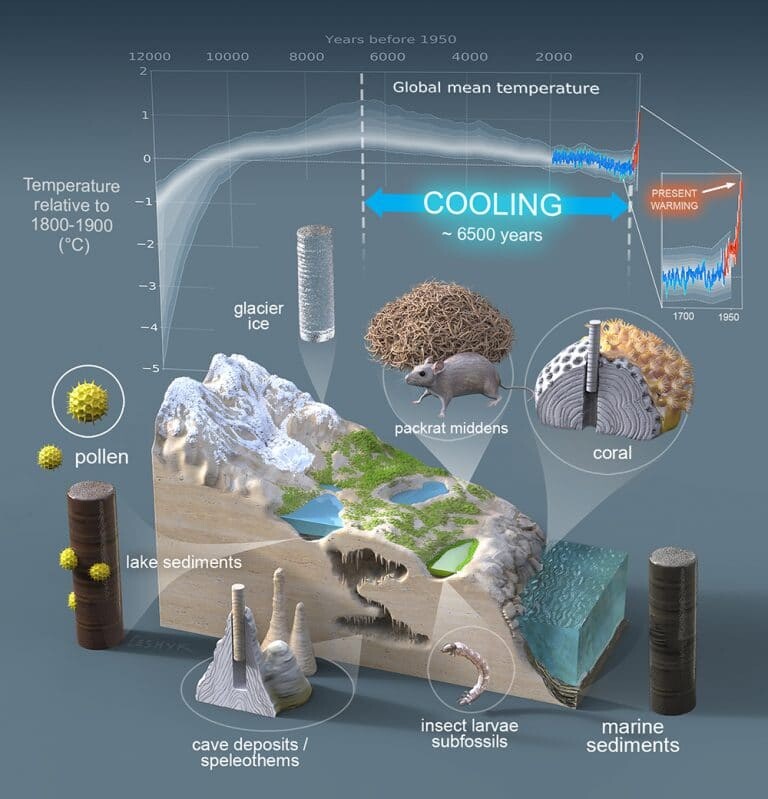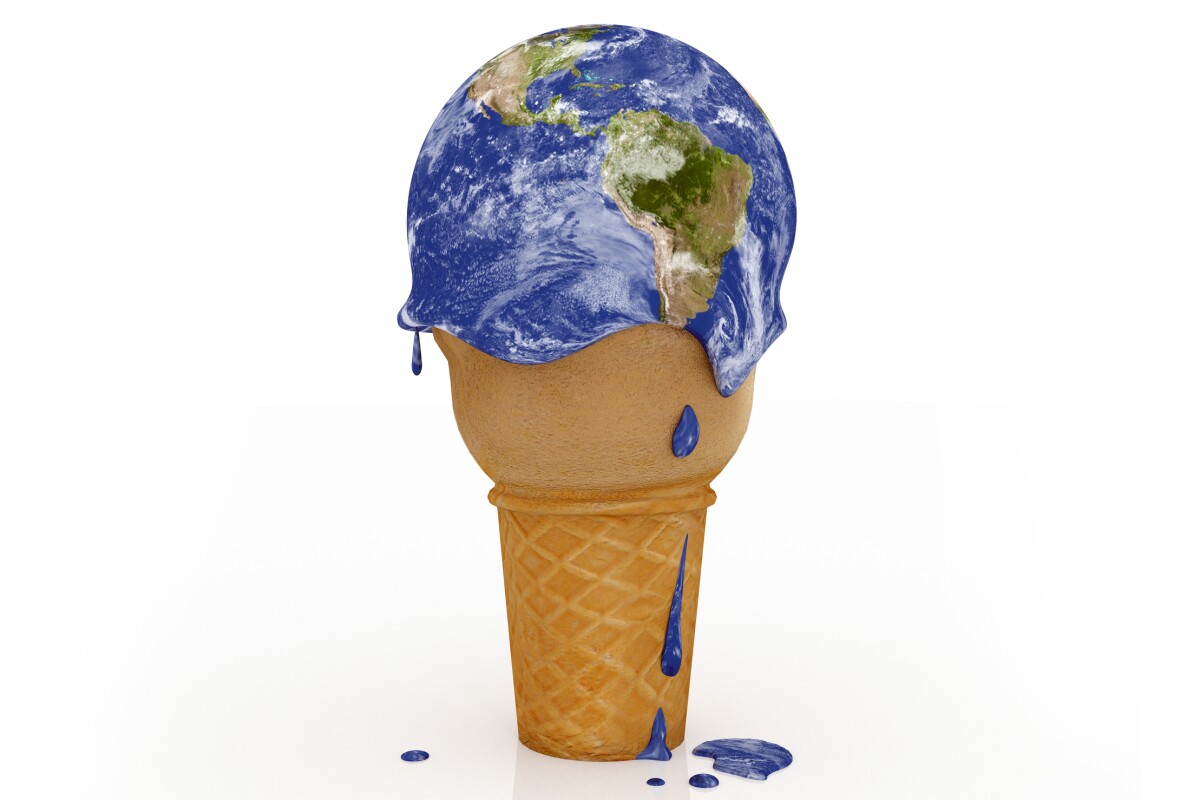What would Earth’s climate naturally be doing if it weren’t for human intervention? Researchers at Northern Arizona University have now analyzed over 12,000 years of climate data, and found that human-induced warming interrupted and reversed a long-term natural global cooling period.
It’s no secret that the Earth is heating up at an incredible speed, with recent months, years and decades all breaking temperature records. But this data only goes back to the 1880s, when observations began being routinely recorded. So how does the current trend compare in the longer term?
To find out, researchers have been compiling data from various sources that stretch back many millennia. A few months ago, a team of 93 scientists published a particularly comprehensive record of paleoclimate data, spanning the past 12,000 years. It includes 1,319 data records from samples like lake deposits, marine sediments, peat, cave deposits, coral, and glacier ice cores, collected from 679 sites around the world.
From that, the researchers were able to chart changes in the surface air temperature over the last 12,000 years – a time when the world was coming out of the last Ice Age. This was then compared to the average for the century between 1800 and 1900, to track how the Industrial Revolution might have changed things.

As expected, at the beginning of that period temperatures were much colder than the 19th century baseline. But they steadily warmed up over the next several millennia, eventually surpassing the baseline. Temperatures peaked around 6,500 years ago, and since then the planet has been slowly but surely cooling down.
“The rate of cooling that followed the peak warmth was subtle, only around 0.1 °C (0.2 °F) per 1,000 years,” says Michael Erb, co-author of the study. “This cooling seems to be driven by slow cycles in the Earth’s orbit, which reduced the amount of summer sunlight in the Northern Hemisphere, culminating in the ‘Little Ice Age’ of recent centuries.”
Of course, the world is no longer cooling – human activity saw to that. Instead, we’ve raised average temperatures by as much as 1 °C (1.8 ° F) since the mid-19th century. That’s a huge spike in a relatively short time, rising even higher than that peak 6,500 years ago.
“It’s possible that the last time the sustained average global temperature was 1°C above the 19th century was prior to the last Ice Age, back around 125,000 years ago when sea level was around 20 feet higher than today,” says Darrell Kaufman, lead author of the study.
Although we’re heading into largely uncharted territory, in terms of climate change, investigating these historic patterns can help us better understand what might lie ahead, under different scenarios.
The research was published in the journal Scientific Data.
Source: Northern Arizona University





